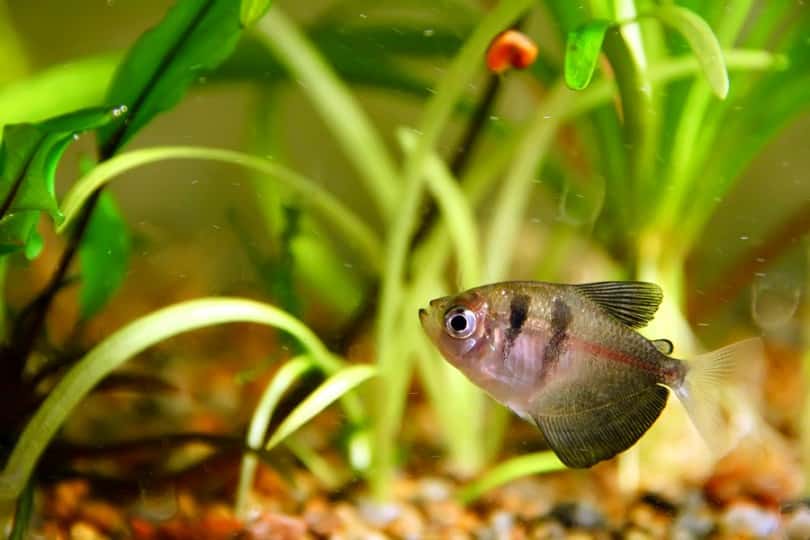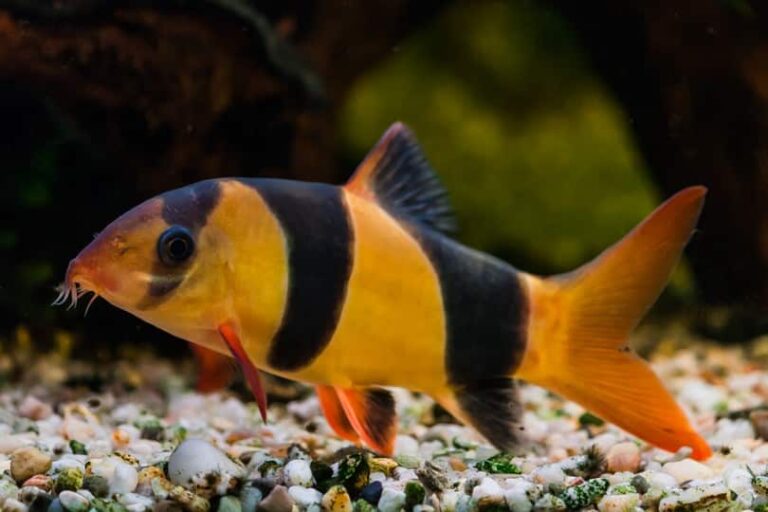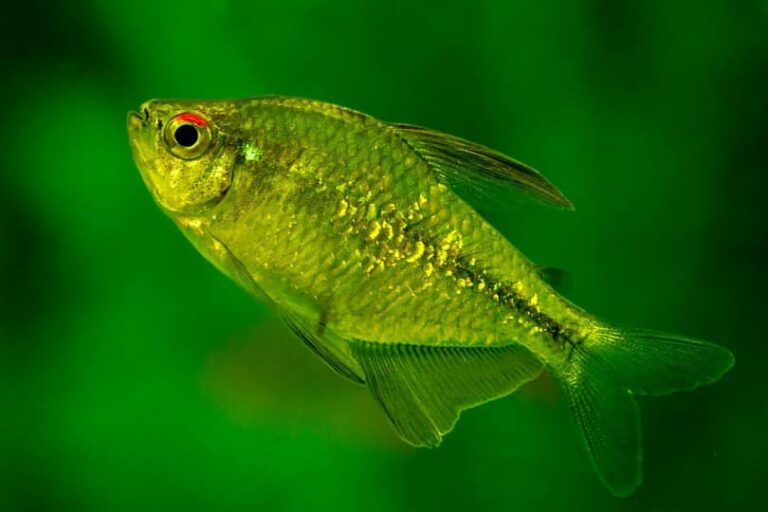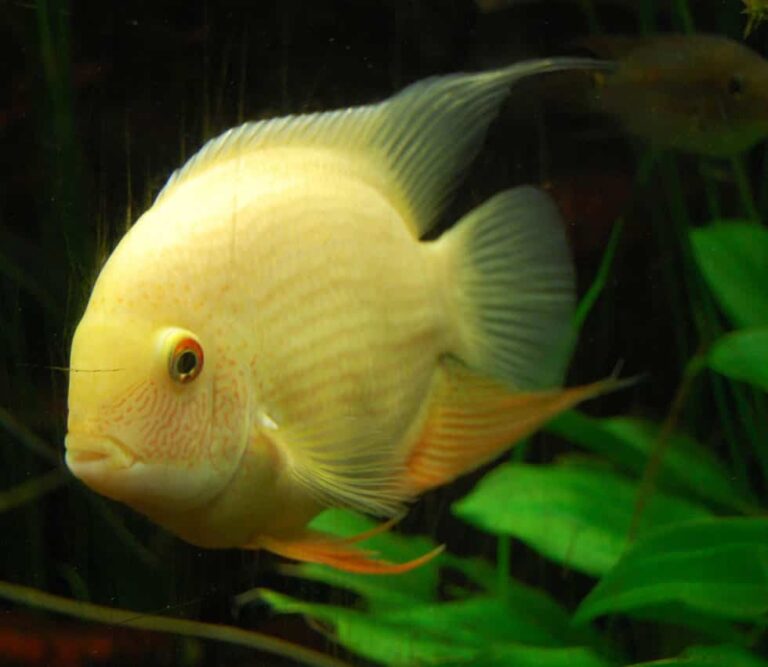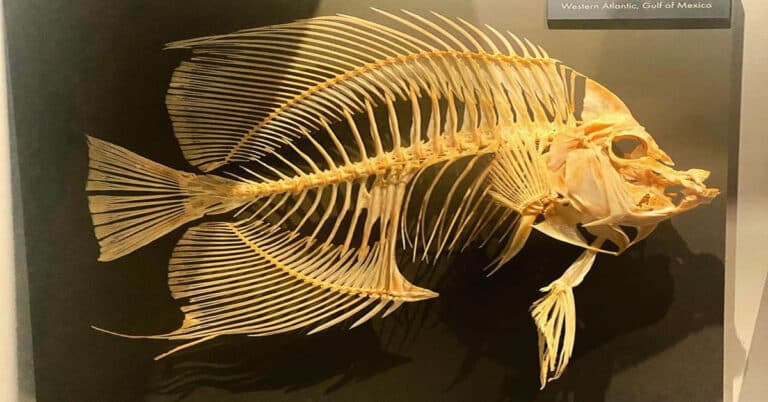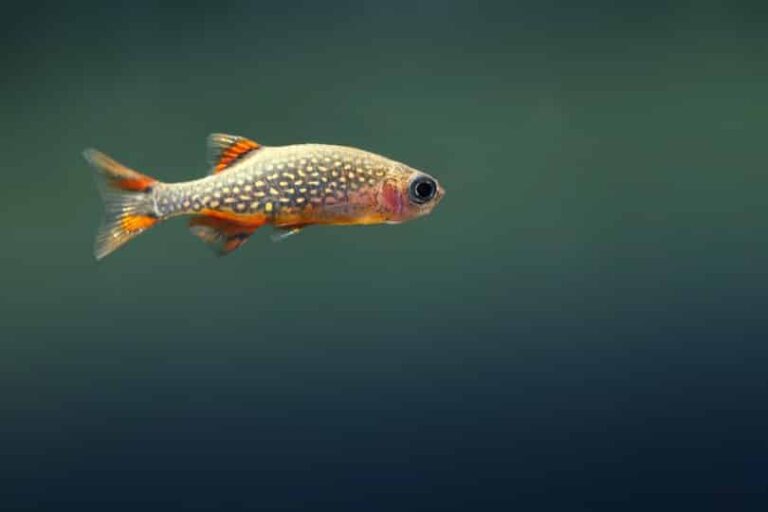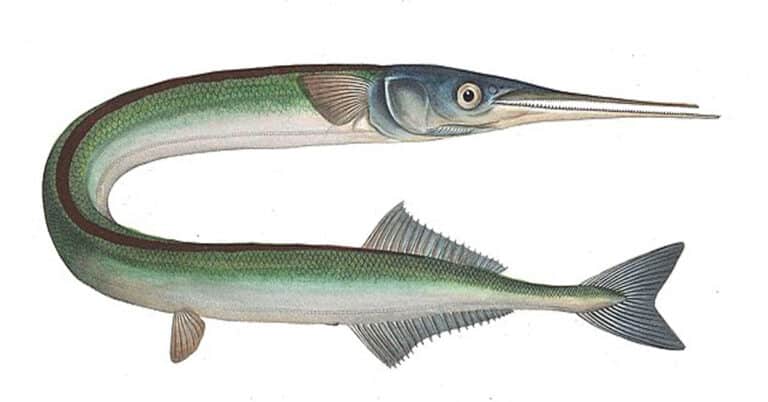Black Skirt Tetra
Scientific classification
| Kingdom: | Animalia |
| Phylum: | Chordata |
| Class: | Actinopterygii |
| Order: | Characiformes |
| Family: | Characidae |
| Genus: | Gymnocorymbus |
| Species: | G. Ternetzi |
| Binomial name: | Gymnocorymbus Ternetzi |
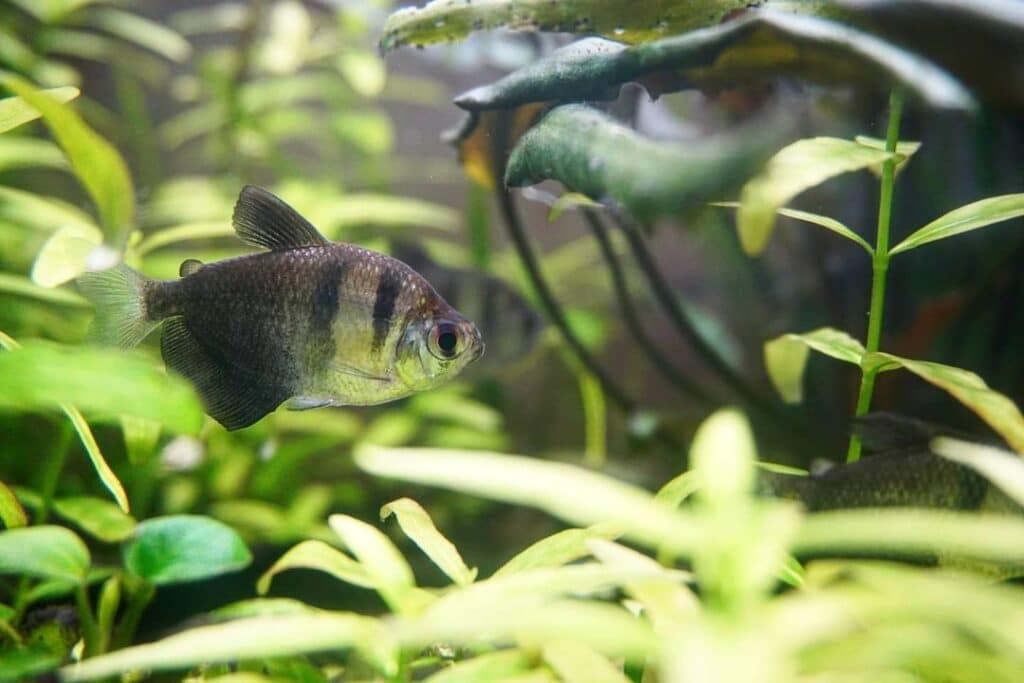
The Black Tetra, scientifically called Gymnocorymbus Ternetzi is otherwise called Black Skirt Tetra, Black Widow Tetra, Petticoat Tetra, and also High-Fin Black Skirt Tetra. The black skirt tetra lives in fresh water and belongs to the Characin group (Characidae). This fish is endemic to the river basins of the River Guapore in southern Brazil, Paraguay, Bolivia, and Argentina.
It reaches a total length of 6 cm (2.5 in), and the shape of the body of this black skirt tetra is more or less tetragonal. It is somewhat gray in color; the color fades from nearly black from the tail to paler near the nose. In the immediate posterior region of its gills, there is a pair of vertical outstanding stripes. The black skirt tetra prefers to school and therefore needs a minimum of six in a set.
This Black widow tetra consumes tiny worms, insects and crustaceans.
Black Skirt tetra habitat and range
The Black skirt tetra is indigenous to the northern regions of Argentina, Brazil, Bolivia and also dwell in the subtropics of the basins of rivers, where the temperature remains 20 and 26° C (68 and 79° F). In the past it was a taken for granted that the Black Skirt Tetra was indigenous to Paraguay also. The Black skirt tetra has been launched now in the adjacent country of Columbia and also in the far end of Thailand. The Black skirt tetra is pelagic variety, which means it stays most of the time in the upper and middle layers of the water.
Black Skirt tetra description
The Black skirt tetra is identified with ease on account of the unique black colored anal and dorsal fins. The body of this fish is adorned with vertical black stripes. The Black Skirt Tetra, when mature is around one year old, at this time this fish exhibits its very sturdy color. In due course, as the Black Skirt Tetra becomes, older, its color fades and the color lightens to a gray shade of silver.
The female Black Skirt Tetra has a slimmer fin at the anal when compared to that of the male fish. The border at the front moves in parallel with other lines running vertically on the female’s belly. The females have dorsal fins that are not as sharper than its counterpart. In case of the males of Black skirt tetras, the front border of the anal fin bends backwards in the direction of the tail. Both the sexes are identified by observing the shape of their body; the female black skirt tetra is naturally chubby when compared to the male. At times, the male black skirt tetras exhibit white colored spots on their caudal fin.
Now a days, you have a choice to acquire alternative Black skirt tetra with long fins which is bred in custody as well as many color options. Do not mistake the identity of the genetic variations in color with that of the unnaturally colored black skirt tetras.
Growing Black Skirt Tetras at Home
Breeding
In the wild the Black skirt tetras are very productive and canat least double the number within 15 months. In case you desire to possess Black skirt tetras in custody, then give them an aquarium which is intensely planted with plants having fine foliage. The species of black skirt tetra scatters their eggs, so their preference is laying their eggs is in between the fine leaves of the plants. The male maintains a region at the breeding time and guards the space. In order to obtain quite a good number of surviving fry, set up a breeding aquarium and remove the parents immediately after the eggs are laid and fertilized. The hatching of the eggs naturally takes place in about 24 hours. Provide the fry with yolk of egg or freshly hatched brine shrimp. Increase the size of the brine shrimp as the fry grows bigger.
Tank
The recommended dimensions of the aquarium required for your Black Skirt Tetra is a minimum length of 60 cm (24 in). Place a minimum set of five Black skirt tetras in a tank. Those Black skirt tetras placed singly or in actually small sets, naturally, get stressed or develop shyness. They use up long periods in hiding and those stressed become weak and lose their immunity and get susceptible to diseases.
Black skirt tetras are normally peace lovers, they accommodate well in aquariums with other species of fish of equal size that and peace loving. When you keep black skirt tetras in small numbers along with the fish with flowing and long fins such as Betta or Angelfish, they become slightly chill. These chilling problems are solved easily, by adding in some more Black Skirt Tetra fish to make a bigger school.
Water condition
The Black skirt tetra fish is a sturdy fish and so it is apt for a fresh a n aquarist. As the black skirt tetras hail from the sub tropical regional waters, it prefers the temperature that is similar to the aquariums of the tropics. Maintain the temperature in between 20 and 26° C (68 and 79° F).
The Black skirt tetra fish adapts well to diverse situations; however, avoid sudden variations and intense situations. The suggested ranges of pH are 6 to 8 and maintain the dH in between 5 and 19.
While setting up your aquarium, imitate the natural habitation of the Black skirt tetra; add plenty of big plants in it. The Black skirt tetra favors dim light gravel of neutral color as its substrate
Nutrition
In nature the Black skirt tetra fish are mainly carnivorous and they consume tiny worms, crustaceans and insects. However, they also consume fewer quantities of plant substances as well as algae. Those Black skirts, in good physical shape are contended consumers in custody; they eat practically every kind of food.. You would do well in providing them with wide-range of diet. They consume live as well as fresh food and also frozen food, flake food and freezer dried food. Basically provide them with superior tropical flake food, with the combination of spirulina, brine shrimp and worms.
Black Skirt tetra setup
Consider providing a tank with dimensions of 20 inches in length and capacity preferably about, 15 gallons or above, because these Black skirt tetras are vigorous swimmers. They favor peat-filtered soft water. They also like covering of plants and dark colored gravel as a substrate. However, in addition, they require open space for swimming liberally. Further, ensure that the aquarium is covered safely, since the black skirt tetras are expert jumpers and surely try when they get a chance.
For your Black skirt tetras to perform in its best possible way, set your aquarium as a biotype.. Use driftwood as well as curved roots, with river sand as substrate. To stain the water to pale brown color, put a few dry leaves in the river sand. Keep changing the leaves after some weeks. To obtain the best color for your Black skirt tetras use dim lights.

Having discovered a fondness for insects while pursuing her degree in Biology, Randi Jones was quite bugged to know that people usually dismissed these little creatures as “creepy-crawlies”.

